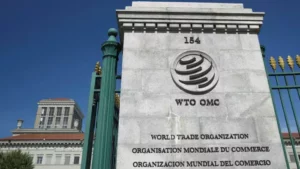Ethiopia is on an assertive path to secure its membership in the World Trade Organization (WTO) by 2026.
This journey, starting in 2003, encountered a pause in 2012 due to reluctance from the previous government to liberalize critical sectors such as banking and telecommunications.
However, revitalized under Prime Minister Abiy Ahmed’s administration since 2020, Ethiopia is demonstrating a strong commitment to global economic integration.
The government has undertaken substantial economic liberalization, opening previously state-dominated sectors to foreign investment.
In 2019, the telecommunications industry was fully liberalized, allowing global giants like Safaricom to establish a presence.

The banking sector is also transitioning, with policies set in 2020 to facilitate foreign bank operations within the country.
Recently, Prime Minister Abiy expanded foreign access to Ethiopia’s export, import, retail, and wholesale sectors.
This move aims to invigorate the economy amid severe foreign currency shortages and a significant downturn.
Ethiopia, with a population surpassing 120 million, is grappling with internal conflicts, notably in the Amhara region, where economic losses since August 2023 exceed ETB 15 billion ($267 million).
Internationally, Ethiopia is backed by key allies such as the UK and UAE, enhancing its prospects for WTO accession.
UK Ambassador Rebecca Fisher Lamb, leading Ethiopia’s WTO Working Party, is optimistic about completing the accession by the end of her term in 2024.
These strategies aim to attract international capital and stimulate the real estate sector.

